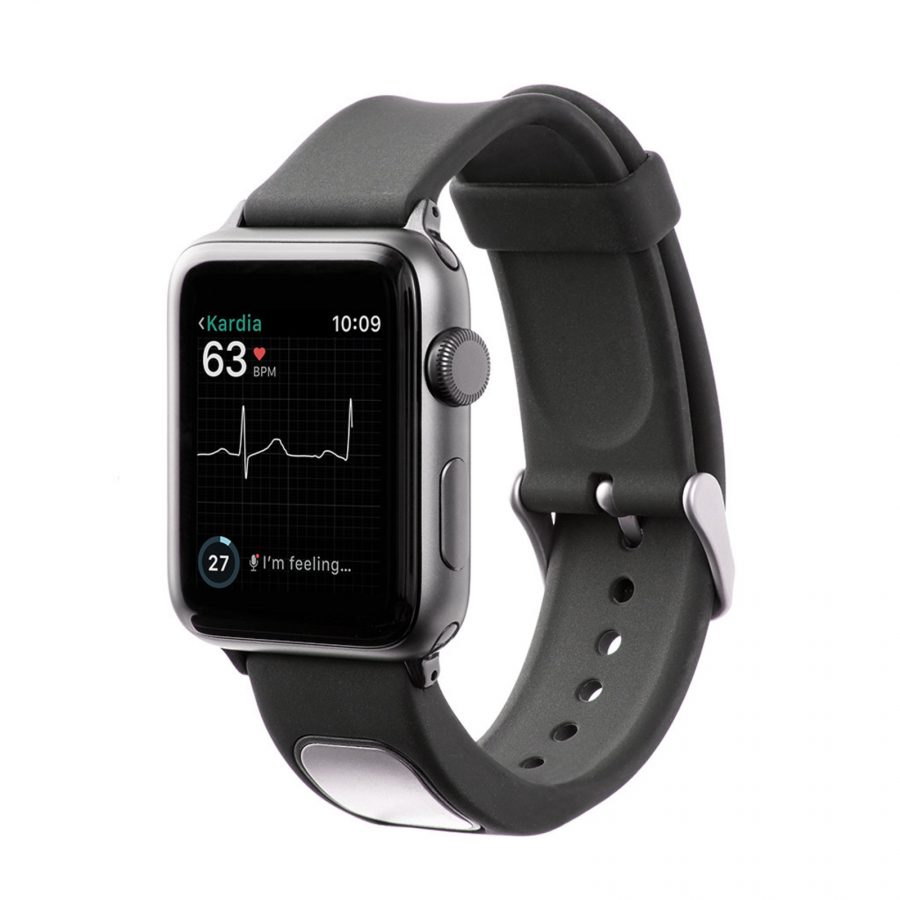On Thursday, AliveCor received approval from the Food and Drug Administration (FDA) to introduce KardiaBand, the first medical accessory for the Apple Watch, to the United States. Consumers will now be able to take a 30-second electrocardiogram (EKG) right on their watch and get reliable readings.
The company, whose CEO is the former head of Google+ Vic Gundotra, is also introducing an app called SmartRythm. The new app will pair with the KardiaBand on the Apple Watch to monitor heart rate and abnormal activity like atrial fibrillation. It can then suggest taking an EKG and sharing results with doctors.
Apple, on the other hand, is launching a new study in partnership with Stanford Medicine to detect precisely this kind of phenomenon and other irregular activities in participants. The Apple Heart Study seeks to enhance the medical assisting reach of the Watch, by alerting and helping people much faster and better.
What is KardiaBand and how does it work?
Essentially, the KardiaBand is a wristband for your Apple Watch that comes embedded with a physical sensor that is better equipped to read your heart rate. You simply put your finger on the silver area for 30 seconds and then the face of the watch shows you your results.
That is because this silver area is what AliveCor calls personal electrocardiogram technology, which up until now was mostly based on software and not on actual, regulation-cleared instruments. Of course, much of the functions of the band couldn’t be carried out without the accompanying app.
AliveCor throws in some artificial intelligence into the mix because it doesn’t want to be just another approximation that tells you the same as all the other apps. Instead, it uses heart rate data from your Apple Watch and contrasts with the normal and irregular conditions for the average population to indicate what’s wrong or normal for you specifically.
How can you participate in the Apple Heart Study?
Both the KardiaBand and the newly launched Apple Heart Study seek to detect a silent killer that is more prominent in the United States than in the rest of the world: atrial fibrillation. This condition is the most common form of irregular heart beating, but it is twice more common among Americans.
People who want to participate in the study need no fancy gear, other than their own Apple Watch of course. Having an Apple Watch Series 1 or later will do, and all they need to do is download the app and confirm they are 22 years old or older.
The app will regularly monitor their heart activity and indicate them whenever they might show signs of AFib. From there, they will be referred to a doctor who is also part of the study for a free checkup and following.



